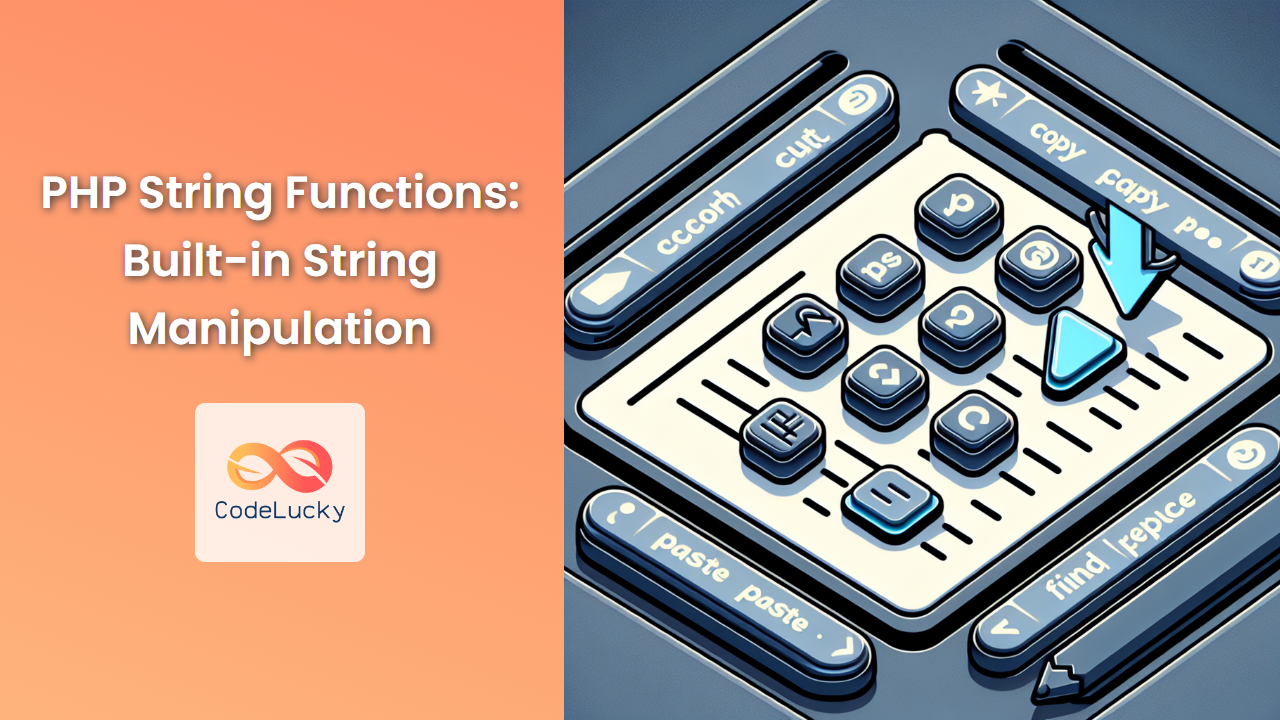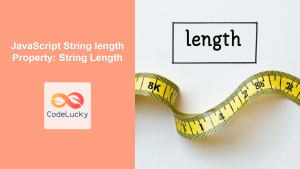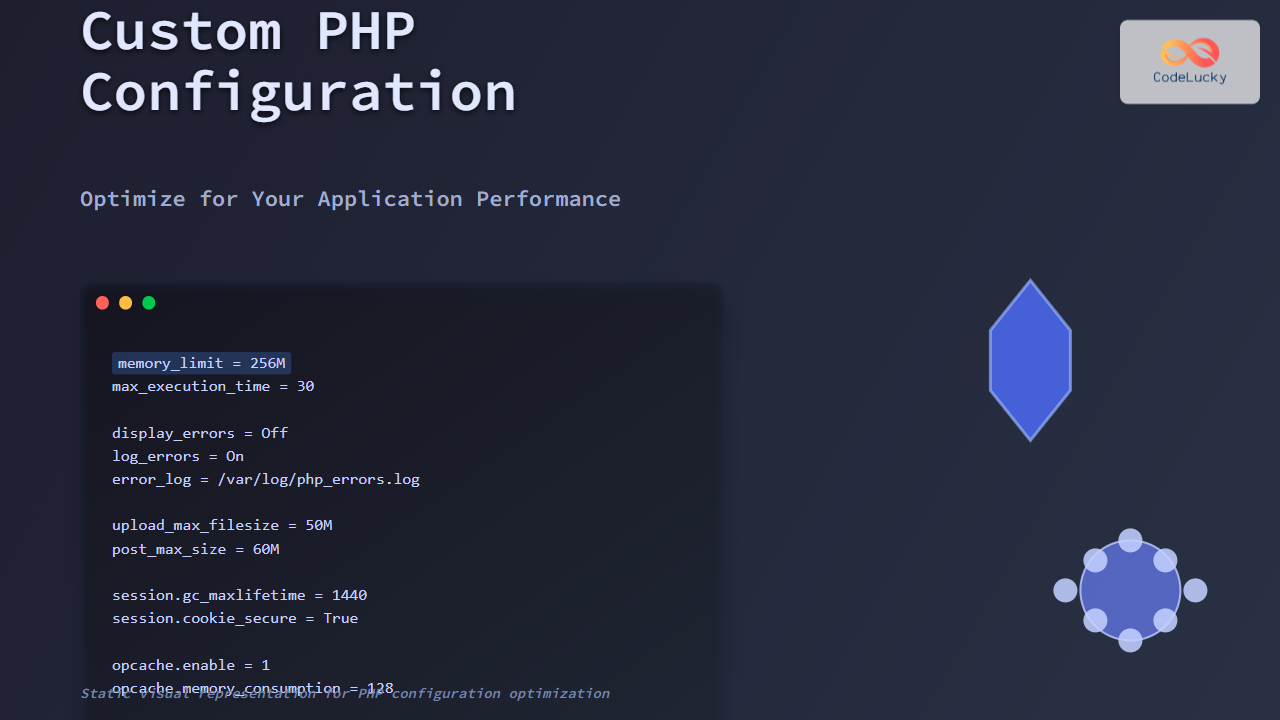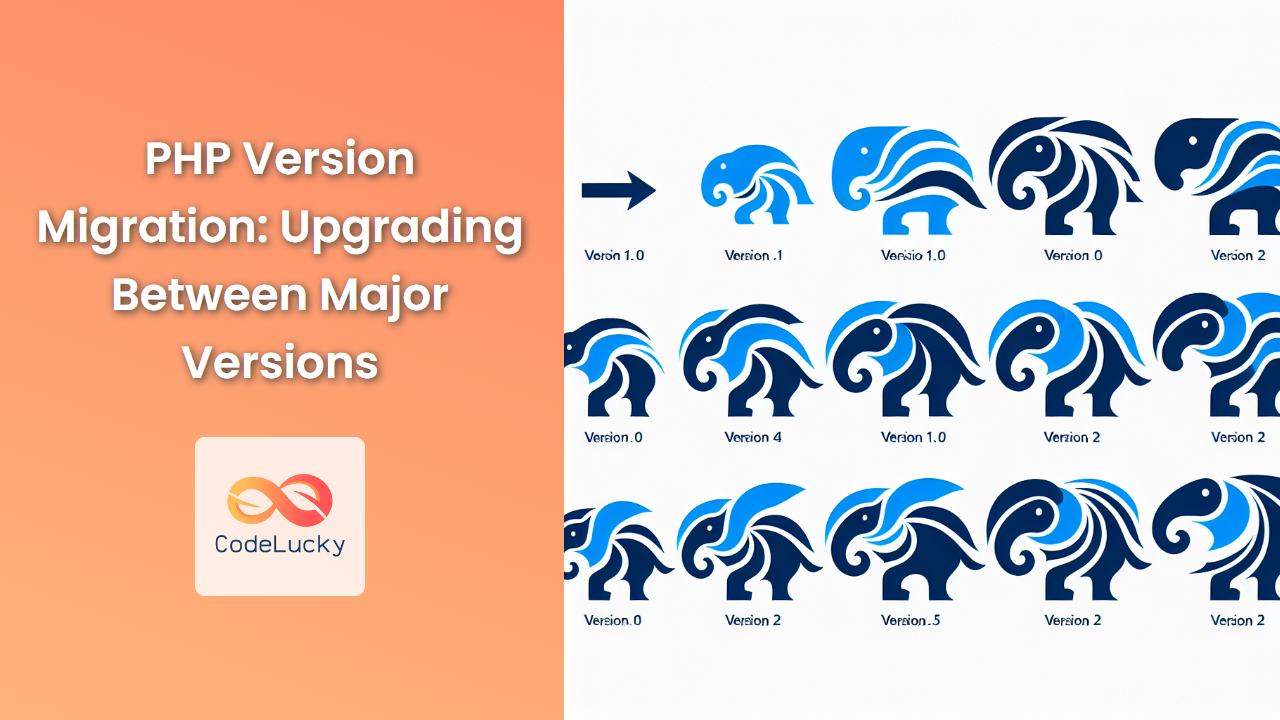PHP offers a rich set of built-in functions for manipulating strings, making it a powerful language for text processing. In this comprehensive guide, we'll explore the most useful PHP string functions, providing practical examples and in-depth explanations for each. By the end of this article, you'll be equipped with the knowledge to efficiently handle string operations in your PHP projects.
1. strlen() – Getting String Length
The strlen() function is used to determine the length of a string. It's one of the most basic yet essential string functions in PHP.
$text = "CodeLucky";
$length = strlen($text);
echo "The length of '$text' is: $length characters";
Output:
The length of 'CodeLucky' is: 9 characters
In this example, we use strlen() to count the number of characters in the string "CodeLucky". The function returns 9, which includes all characters, including spaces if there were any.
🔍 Pro Tip: Remember that strlen() counts bytes, not characters. This can lead to unexpected results with multi-byte character sets like UTF-8.
2. str_word_count() – Counting Words
When you need to count the number of words in a string, str_word_count() comes in handy.
$sentence = "PHP is a versatile programming language";
$wordCount = str_word_count($sentence);
echo "The sentence '$sentence' contains $wordCount words.";
Output:
The sentence 'PHP is a versatile programming language' contains 6 words.
This function considers a word as a string of alphabetic characters, which may include apostrophes and hyphens.
3. strpos() – Finding a Substring
The strpos() function is used to find the position of the first occurrence of a substring within a string.
$haystack = "Welcome to CodeLucky, where coding is lucky!";
$needle = "CodeLucky";
$position = strpos($haystack, $needle);
if ($position !== false) {
echo "The word '$needle' was found at position: $position";
} else {
echo "The word '$needle' was not found in the string.";
}
Output:
The word 'CodeLucky' was found at position: 11
In this example, we search for "CodeLucky" within the larger string. The function returns the position (11) where it first appears. Note that string positions in PHP start from 0.
🚀 CodeLucky Insight: Always use the !== operator when checking the result of strpos(). This is because if the substring is found at the beginning of the string (position 0), a simple == comparison with false would incorrectly evaluate to true.
4. substr() – Extracting Part of a String
The substr() function allows you to extract a portion of a string.
$email = "[email protected]";
$domain = substr($email, strpos($email, '@') + 1);
echo "The domain of the email address is: $domain";
Output:
The domain of the email address is: codelucky.com
Here, we use substr() in combination with strpos() to extract the domain part of an email address. The function takes three parameters: the string, the starting position, and optionally, the length of the substring to extract.
5. str_replace() – Replacing Substrings
str_replace() is used to replace all occurrences of a substring within a string.
$text = "The quick brown fox jumps over the lazy dog";
$search = "fox";
$replace = "cat";
$newText = str_replace($search, $replace, $text);
echo "Original: $text\n";
echo "Modified: $newText";
Output:
Original: The quick brown fox jumps over the lazy dog
Modified: The quick brown cat jumps over the lazy dog
This function is case-sensitive. If you need case-insensitive replacement, you can use str_ireplace().
6. strtolower() and strtoupper() – Changing Case
These functions convert a string to all lowercase or all uppercase, respectively.
$mixed = "CodeLucky: Learn PHP";
$lower = strtolower($mixed);
$upper = strtoupper($mixed);
echo "Original: $mixed\n";
echo "Lowercase: $lower\n";
echo "Uppercase: $upper";
Output:
Original: CodeLucky: Learn PHP
Lowercase: codelucky: learn php
Uppercase: CODELUCKY: LEARN PHP
These functions are particularly useful for standardizing input or for case-insensitive comparisons.
7. ucfirst() and ucwords() – Capitalizing Words
ucfirst() capitalizes the first character of a string, while ucwords() capitalizes the first character of each word in a string.
$title = "welcome to codelucky";
$sentenceCase = ucfirst($title);
$titleCase = ucwords($title);
echo "Original: $title\n";
echo "Sentence case: $sentenceCase\n";
echo "Title case: $titleCase";
Output:
Original: welcome to codelucky
Sentence case: Welcome to codelucky
Title case: Welcome To Codelucky
These functions are great for formatting titles or names in a standardized way.
8. trim(), ltrim(), and rtrim() – Removing Whitespace
These functions remove whitespace (or other specified characters) from the beginning and/or end of a string.
$input = " \t\nCodeLucky: PHP Mastery\t \n";
$trimmed = trim($input);
$leftTrimmed = ltrim($input);
$rightTrimmed = rtrim($input);
echo "Original: '$input'\n";
echo "Trimmed: '$trimmed'\n";
echo "Left Trimmed: '$leftTrimmed'\n";
echo "Right Trimmed: '$rightTrimmed'";
Output:
Original: '
CodeLucky: PHP Mastery
'
Trimmed: 'CodeLucky: PHP Mastery'
Left Trimmed: 'CodeLucky: PHP Mastery
'
Right Trimmed: '
CodeLucky: PHP Mastery'
These functions are invaluable for cleaning up user input or formatting output.
9. explode() and implode() – String to Array and Back
explode() splits a string into an array based on a delimiter, while implode() joins array elements into a string.
$csvString = "PHP,JavaScript,Python,Ruby";
$languages = explode(",", $csvString);
echo "CSV String: $csvString\n";
echo "Array of languages:\n";
print_r($languages);
$newString = implode(" | ", $languages);
echo "New string: $newString";
Output:
CSV String: PHP,JavaScript,Python,Ruby
Array of languages:
Array
(
[0] => PHP
[1] => JavaScript
[2] => Python
[3] => Ruby
)
New string: PHP | JavaScript | Python | Ruby
These functions are extremely useful for working with delimited data or creating formatted strings from arrays.
10. str_pad() – Padding a String
str_pad() pads a string to a certain length with another string.
$code = "PHP";
$paddedLeft = str_pad($code, 10, "*", STR_PAD_LEFT);
$paddedRight = str_pad($code, 10, "*", STR_PAD_RIGHT);
$paddedBoth = str_pad($code, 10, "*", STR_PAD_BOTH);
echo "Original: $code\n";
echo "Left padded: $paddedLeft\n";
echo "Right padded: $paddedRight\n";
echo "Both sides padded: $paddedBoth";
Output:
Original: PHP
Left padded: *******PHP
Right padded: PHP*******
Both sides padded: ***PHP****
This function is great for formatting output or creating fixed-width fields.
🌟 CodeLucky Bonus: Here's a practical example combining several string functions to create a username generator:
function generateUsername($fullName, $birthYear) {
// Convert to lowercase and remove spaces
$name = strtolower(str_replace(' ', '', $fullName));
// Get the first 5 characters of the name
$namePart = substr($name, 0, 5);
// Get the last two digits of the birth year
$yearPart = substr($birthYear, -2);
// Combine parts and add a random number
$username = $namePart . $yearPart . rand(10, 99);
return $username;
}
$fullName = "John Doe";
$birthYear = "1990";
$username = generateUsername($fullName, $birthYear);
echo "Generated username for $fullName born in $birthYear: $username";
Output:
Generated username for John Doe born in 1990: johnd9047
This example demonstrates how combining various string functions can create powerful and practical tools for real-world applications.
Conclusion
PHP's built-in string functions provide a robust toolkit for manipulating and processing text data. From basic operations like finding string length and changing case, to more complex tasks like pattern matching and string splitting, these functions offer efficient solutions for a wide range of string-related challenges.
By mastering these functions, you'll be well-equipped to handle text processing tasks in your PHP projects, whether you're building web applications, parsing data, or generating dynamic content. Remember, practice is key to becoming proficient with these functions, so don't hesitate to experiment with them in your own code.
Keep coding, keep learning, and may your code always be lucky with CodeLucky! 🍀
- 1. strlen() – Getting String Length
- 2. str_word_count() – Counting Words
- 3. strpos() – Finding a Substring
- 4. substr() – Extracting Part of a String
- 5. str_replace() – Replacing Substrings
- 6. strtolower() and strtoupper() – Changing Case
- 7. ucfirst() and ucwords() – Capitalizing Words
- 8. trim(), ltrim(), and rtrim() – Removing Whitespace
- 9. explode() and implode() – String to Array and Back
- 10. str_pad() – Padding a String
- Conclusion



















